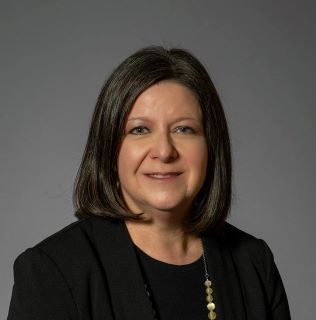Blog Article Tags
We love building relationships. Subscribe to our blog to receive weekly encouragement in your email inbox.
Search Blog Posts
- Details
 Written by Deanna Brooks, volunteer with Iron Rose Sister Ministries in Arkansas
Written by Deanna Brooks, volunteer with Iron Rose Sister Ministries in Arkansas
Be perfect. Be holy. These words ring in my ears over and over… and I hurt, because I know my weak spots. Can you identify? Have you had those feelings?
First Peter 1:15-16 tells us: “…as he who called you is holy, you also be holy in all your conduct, since it is written, ‘You shall be holy, for I am holy’” (ESV).
The Savior said, “You therefore must be perfect, as your heavenly Father is perfect” (Mt 5:48).
I see these commands as the path our lives should take so we better understand our Heavenly Father's desire for us to follow Him. We sin… none of us are righteous (Ro 3:10), but when we obey Jesus and are baptized for the remission of sins, His righteousness covers us (2Co 5:21; Php 3:9; Gal 3:27; Eph 4:24).
God told Samuel that He looks on the heart (1Sa 16:7).
At Antioch, Paul told those present that David was a man after God’s own heart (Ac 13:22).
When I read this, I think of David as a man who wanted more than anything to do God’s will, despite the battles he sometimes had with Satan… and David, like we do, sometimes lost those battles with Satan.
A verse that is special to me is Psalm 25:7, where David writes: “Remember not the sins of my youth.” All of us understand that as we grow in our relationship with God, we realize we made some poor decisions in our earlier lives that we would not make now simply because of the experience we have in life. We have to learn how to deal with peer pressure, to learn to control desires when something looks good but is wrong, and sometimes by simply learning it is ok, and right, to say “no.”
In Psalm 51 David cries out for God to “create within [him] a clean heart.” The Hebrew word David used for “create” is the same word in Genesis 1:1… something only God can do.
What do you think God looks for in a heart that seeks Him? I think of the following:
1. God wants my heart to love Him. “…Love the LORD your God with all your heart and with all your soul” (Dt 30:6b). ”…Love the Lord your God with all your heart and with all your soul and with all your mind” (Mt 22:37b).
2. God wants my heart to put Him first. “You shall have no other gods before me” (Ex 20:3).
3. God wants my heart to serve Him. “…serve him with all your heart and with all your soul” (Dt 11:13b).
4. God wants my heart to keep His Word. “This day the LORD your God commands you to do these statutes and rules. You shall therefore be careful to do them with all your heart and with all your soul” (Dt 26:16).
5. God wants my heart to seek Him. “And they entered into a covenant to seek the LORD, the God of their fathers, with all their heart and with all their soul” (2Ch 15:12). “You will seek me and find me, when you seek me with all your heart” (Jer 29:13).
6. God wants my heart to follow Him. “…My servant David, who kept my commandments and followed me with all his heart, doing only that which was right in my eyes” (1Ki 14:8b).
7. God wants my heart to praise Him. “I will glorify your name forever” (Ps 86:12b).
8. God wants my heart to trust Him. "For our heart is glad in Him, because we trust in His holy name” (Ps 33:21). “In God whose word I praise, in God I trust; I will not be afraid. What can flesh do to me?” (Ps 56:4).
9. God wants my heart to have unwavering faith in Him. “I am the resurrection and the life. Whoever believes in me, though he die, yet shall he live, and everyone who lives and believes in me shall never die” (Jn 11:25, 26).
I believe God said of David: “I have found a man who cares about the things I care about.”
I need to ask: What am I doing in my life to make sure the things important to me are the same things that are important to my Heavenly Father?
- Details
 Written by Anessa Westbrook, volunteer with Iron Rose Sister Ministries in Arkansas
Written by Anessa Westbrook, volunteer with Iron Rose Sister Ministries in Arkansas
When we read about heroes in the Old Testament, their example seems so unattainable: Abraham, Moses, David, Ruth, Esther, and Deborah. David. His relationship with God was enviable. In 1 Samuel God rejects Israel’s first king, Saul. Because Saul had not followed God’s commands, his kingdom would not endure. In 1 Samuel 13:14 it says that “the Lord has sought out a man after his own heart and appointed him ruler of his people” (NIV). I always assumed that being someone labeled “after God’s own heart” was only attainable for the biblical heroes of old. It wasn’t something that we could, or perhaps even should, consider. While it was obvious that a person after God’s own heart kept His commands, I felt that was not enough to really know what was meant by that statement. The Bible is filled with people who had followed His commands, but only David was given this label. I still remember the day that I bumped into Acts 13:22. This passage seemed to give definition to what I was struggling to understand. David was a man after God’s own heart because “he will do everything I want him to do.” While this was still a high task, and perhaps impossible, was there a chance for a regular person to have God think about them in the same way?
The New Testament shows examples of people living their everyday lives in a faithful way, and God using them in a special way at a specific time. Stephen, for example, was one of the seven men selected to help with the distribution of food to the widows. In Acts 6:5, he is described as “a man full of faith and of the Holy Spirit.” He worked day-by-day to support and encourage the early church, but God was also using him evangelistically (Ac 6:8). Stephen was someone whose character was shaped daily, and who God used to share the Good News and glorify Him in the difficult position of becoming the first martyr. Another example is that of Tabitha who Acts 9:36 says was “always doing good and helping the poor.” When she died, the widows mourned and showed Peter all she had done for them. Peter raised her from the dead and this act became a spiritual testimony to the people of Joppa (Ac 9:41-42).
However, the Bible does not just provide positive examples for us to learn from. David’s story becomes complicated because of some major spiritual missteps. Instead of accompanying his troops off at war, he was at home in his palace and became interested in a young woman who was bathing on the rooftop. After she became pregnant, he tried to hide the sin ultimately resorting to the murder of her husband (2Sa 11). Someone who both cheated on their spouse and then had their lover’s spouse killed would likely make the news today. How could God use such a person? The genealogy of Jesus in Matthew 1 adds an interesting twist to this story because it has three women whose stories would likely raise eyebrows even today: Tamar, Rahab, and Bathsheba. Why would the storyline of the Savior contain such imperfect people? Perhaps we are seeing a side of God that we have seen since the very beginning of the Old Testament: God as Creator.
One of God’s specialties is taking something that is messy and making something beautiful out of it. The inclusion of these people in the line of Jesus raises another important question: what if they had said “no” to God? What if they had felt too imperfect to be included in His plan or had not tried to make the changes needed to become faithful? In Psalm 51 we see David’s heart after he was confronted by Nathan. He did not justify his actions but recognized his sin. He begged God to cleanse him. David made the changes necessary in his life to become Israel’s most respected king and the father of the line that would lead to the Savior. The examples of those who strove to live a daily life that pleased God, as well as those who made the changes necessary to live a faithful life, invite us to reflect on being a woman after God’s own heart.
What is it that is keeping us from saying “yes” to God’s invitation to partner with Him in the kingdom?
